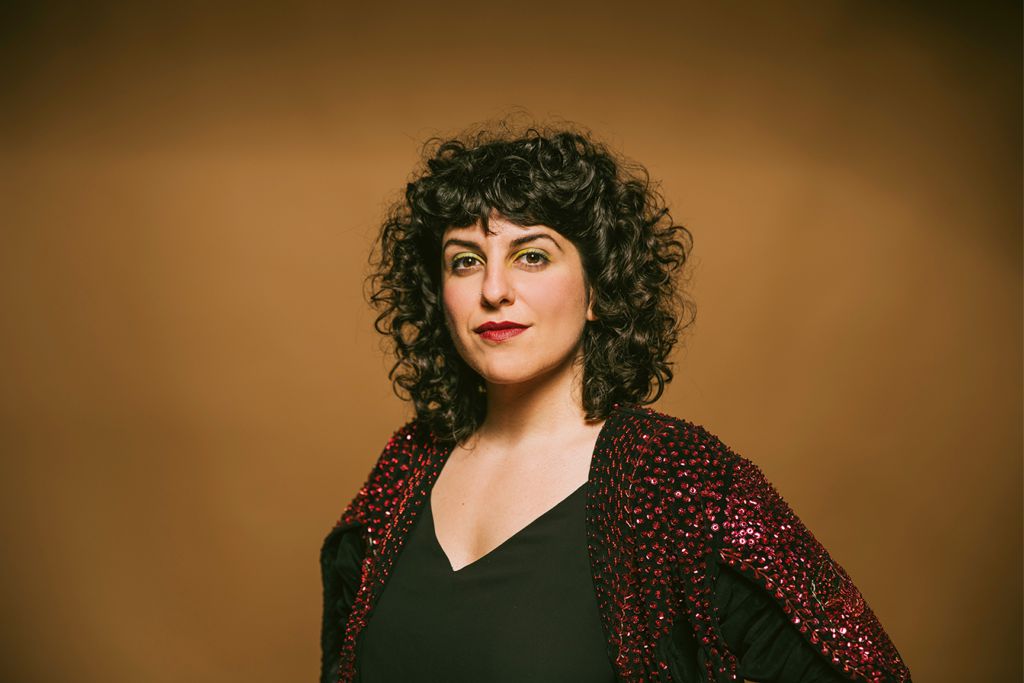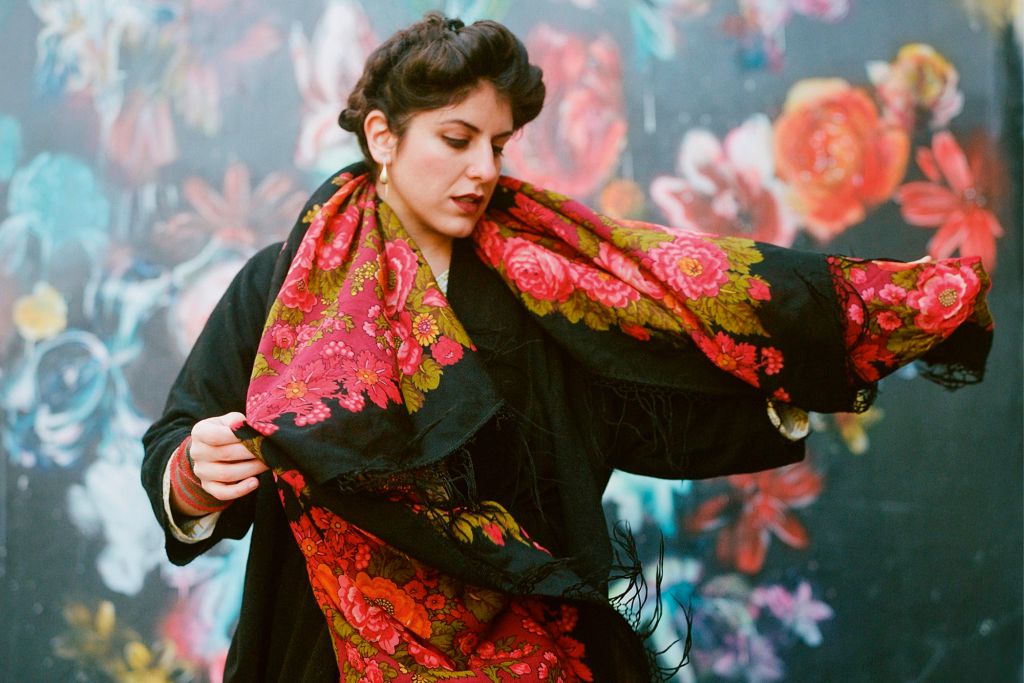In keeping with the motto “change as a driving force”, this successful and authentic singer, bandleader, and composer—a courageous, powerful woman whose art overcomes divisions in more ways than one—is fighting for better working conditions in her profession and for social justice.

“I’m a curious and flexible person by nature. And these traits have been reinforced both by my life experience and by the various cultures I’ve lived in.” This versatile artist, who was born and raised in Iran with Persian as her mother tongue, eventually continued her path through life in Canada and then in Austria. It was during her fourth year as a biology student at York University in Toronto that Golnar Shahyar first discovered within herself an enormous creative energy as well as a burning desire to express herself and communicate with others. As a result, she decided to devote her life to music and shifted the focus of her activities to Vienna. It would be many years, however, before she came to truly identify as a musician. “Being a musician is a lifestyle and philosophy: I live what I do and I do what I live. So for me, this process is still on ongoing.”
I have my rebelliousness from Iran, my freedom and courage from Canada, and my resistiveness and the desire for self-expression from Austria.
She first enrolled at the Vienna Conservatory, where she began studying classical repertoire. “I was particularly fond of Carmen, and I liked the way my body felt when I sang classical arias and Lieder.” However, it soon became clear to her that she just couldn’t be herself in the European classical music tradition. She therefore began connecting her musical roots with folk music, jazz, experimental music, and improvisation. While her musical mother tongue includes microtonal elements found in the Middle Eastern and MENA region, she by no means limits herself to those alone. “I’m someone who can get excited about a lot of things, and I view musical expressions as treasures. This diversity is so fascinating to me, and I’ll be continuing to expand my understanding of this abstract language until the day I cannot play music anymore.”
Culture is the heart of a society.
Shahyar eventually came into contact with the mdw professor Elfi Aichinger through her partner at the time and ultimately ended up enrolling at the mdw’s Department of Popular Music (ipop). “To me, Elfi Aichinger is an example of a woman who’s found her own way of expressing herself musically and managed to establish herself with it. I found that very inspiring.” Today, she discovers new inspiration in time spent by herself, in nature, and in processing the events around her—as well as in human interaction and social conflicts. “I learn so much from playing with other musicians. In my opinion, this is the true school of music.” In doing so, she views cultural and musical dialogue as part of her work. “Music creates the space where people share their dreams, their ideas, and how they live with one another.”
Expressing her thoughts and her own self through her music embodies a central aspect of her work. This exceptional artist characterises herself as a teller of stories, and she writes her own lyrics. “I’m very interested in peoples’ identities and stories and in how cultures develop. It all gives me so much inspiration in my personal life.”
It’s difficult to believe that, to this day, our music education system has continued to simply ignore our world’s infinite musical treasures in order to reproduce an exclusive and elitist culture that’s accessible only to a certain social and cultural class.

Alongside her broad range of artistic doings, this deeply committed singer also advocates for social justice and better working conditions for her colleagues. “Having survived this industry for 10 years, I’ve realised that it’s not enough to merely play music. And as a result, I’ve begun educating myself even more intensely on social and political issues.” As a marginalised artist and as a person who’s experienced the system of music education that exists in Austria, she feels a responsibility to speak out about its shortcomings. And by doing so, Shahyar is effectively taking steps in the battle against systemic discrimination as well as poor working conditions. In a recent open letter to Austria’s music and cultural journalists, she addressed the lack of knowledge about and interest in the diversity of the musical community—a move that generated numerous positive reactions among her colleagues from all genres and nationalities. However, the reactions that came from the media landscape itself were tepid.
“We, as a musical community, should know that nobody but ourselves will help us improve this situation. If I address an issue, I work towards resolving it—and recognising and talking about it is the first step in doing so.” The pandemic and the associated lockdowns have now given Golnar Shahyar and her colleagues, including the mdw student, composer, and sound artist Rojin Sharafi and the conductor Yalda Zamani, some time to discuss their stances and develop initial concepts. Their newly founded platform WE:Shape is intended to facilitate initial steps toward improving communication within the community as well as launching initial measures such as educational programmes and live music events. “We’re looking to open up dialogues as well as organise concerts and activities in order to address all the important themes.”
The language of music must not be a means of defining oneself against other cultures or identities.
By now, advocating for social justice and equality in society has become just as important to Golnar Shahyar as her musical work itself.
“The language of music must not be a means of defining oneself against other cultures or identities. We’re human beings before we’re musicians, and our music is simply the reflection of our life story. So get to know yourself and the world around you. With a bit of discipline and empathy, your music is bound to connect with others—changing your life and then your surroundings for the better.”

